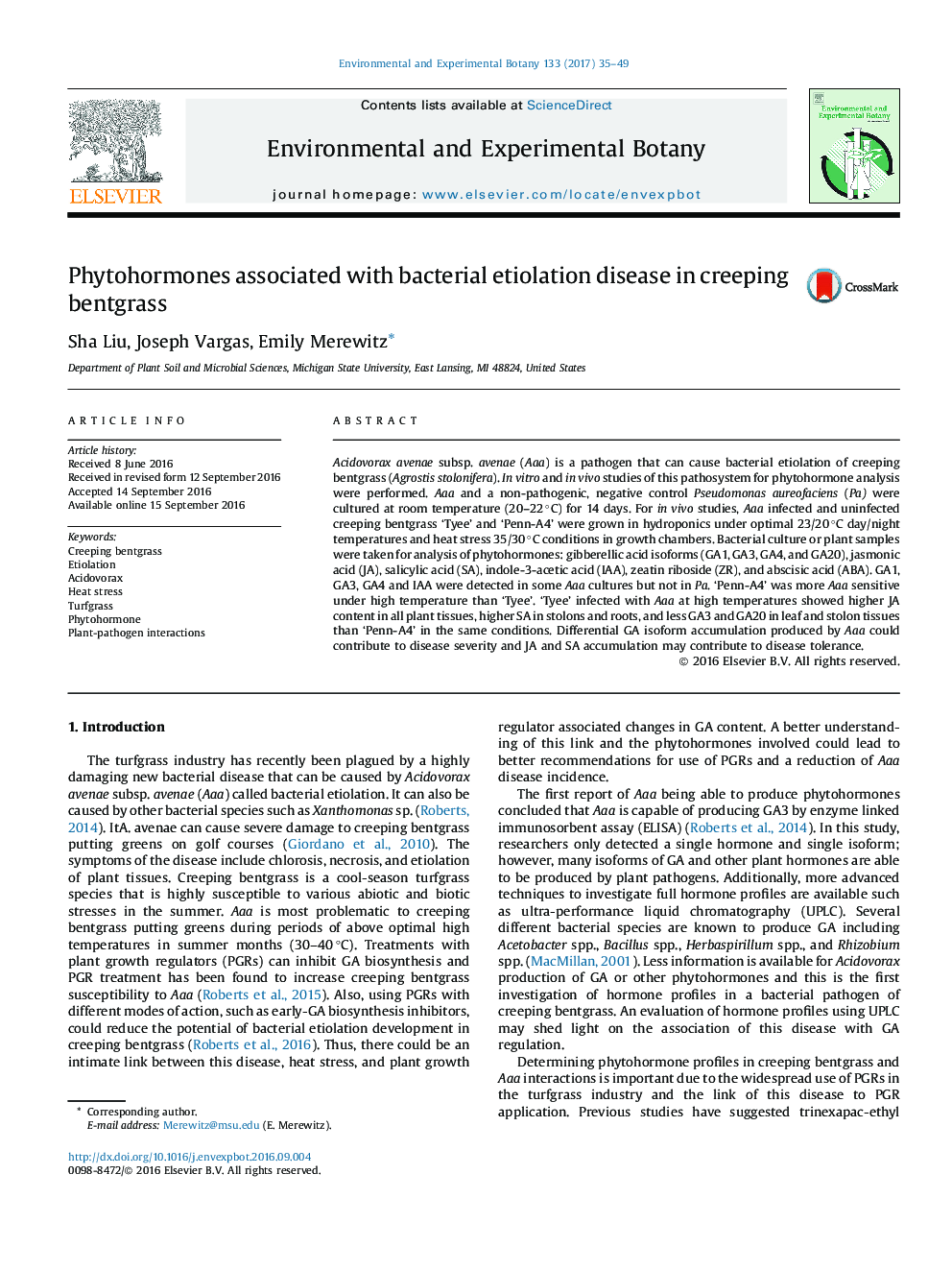| Article ID | Journal | Published Year | Pages | File Type |
|---|---|---|---|---|
| 6388810 | Environmental and Experimental Botany | 2017 | 15 Pages |
Abstract
Acidovorax avenae subsp. avenae (Aaa) is a pathogen that can cause bacterial etiolation of creeping bentgrass (Agrostis stolonifera). In vitro and in vivo studies of this pathosystem for phytohormone analysis were performed. Aaa and a non-pathogenic, negative control Pseudomonas aureofaciens (Pa) were cultured at room temperature (20-22 °C) for 14 days. For in vivo studies, Aaa infected and uninfected creeping bentgrass 'Tyee' and 'Penn-A4' were grown in hydroponics under optimal 23/20 °C day/night temperatures and heat stress 35/30 °C conditions in growth chambers. Bacterial culture or plant samples were taken for analysis of phytohormones: gibberellic acid isoforms (GA1, GA3, GA4, and GA20), jasmonic acid (JA), salicylic acid (SA), indole-3-acetic acid (IAA), zeatin riboside (ZR), and abscisic acid (ABA). GA1, GA3, GA4 and IAA were detected in some Aaa cultures but not in Pa. 'Penn-A4' was more Aaa sensitive under high temperature than 'Tyee'. 'Tyee' infected with Aaa at high temperatures showed higher JA content in all plant tissues, higher SA in stolons and roots, and less GA3 and GA20 in leaf and stolon tissues than 'Penn-A4' in the same conditions. Differential GA isoform accumulation produced by Aaa could contribute to disease severity and JA and SA accumulation may contribute to disease tolerance.
Keywords
Related Topics
Life Sciences
Agricultural and Biological Sciences
Ecology, Evolution, Behavior and Systematics
Authors
Sha Liu, Joseph Vargas, Emily Merewitz,
